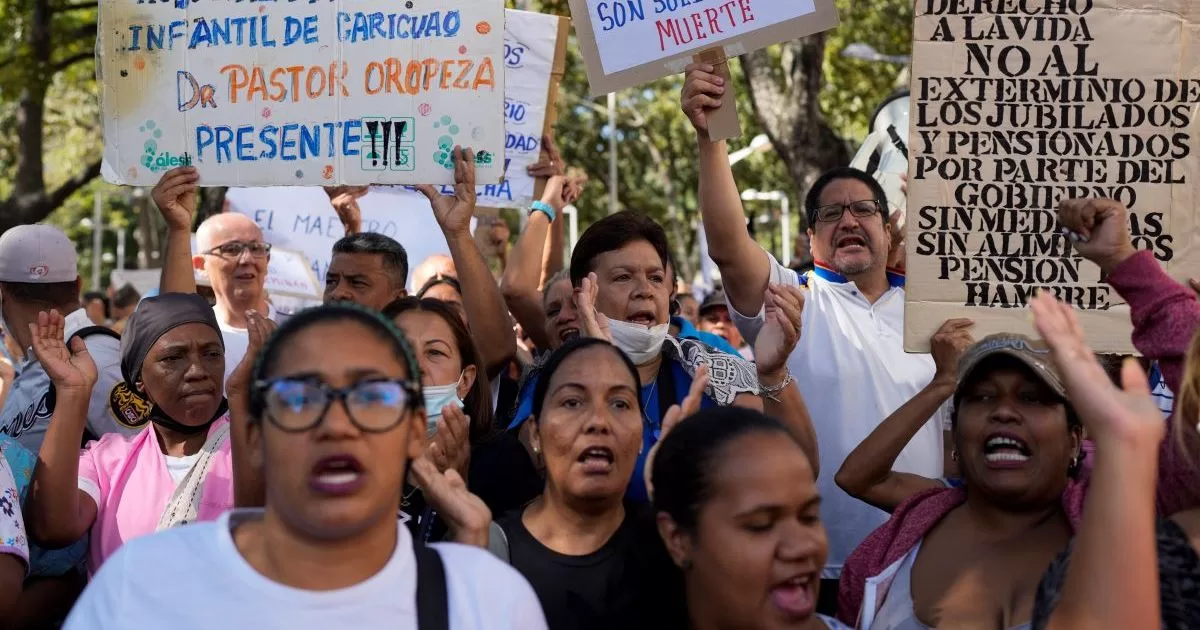CARACAS.– In Venezuela there will be electionsbut not free or competitive, says political analyst John Magdaleno, and for that reason he proposes the need to build a social movement that builds “a source of internal pressure” and that forces the Nicolás Maduro regime to satisfactorily restore the guarantees raped in recent times
Magdaleno, consultant and specialist in data analysis in Social Sciences, considers that “the entry into the political scene of a third collective actor” is required in the face of the most recent violent actions of the ruling party against Venezuelan dissidence, which would compromise the word given. to hold presidential elections in accordance with the terms of the signed Barbados Agreement, and for which he consulted DIARIO LAS AMERICAS.
Between January 11 and 31, the Maduro regime took over all civic spaces with harsh attacks, with the alleged purpose of showing “strength” and intimidating opponents. A repressive and intimidating agenda that they seek to officially catapult on a national and international scale with the name of “Bolivarian Fury”, in force since January 23.
He threatened opposition parties with the confiscation of assets; to human rights and training NGOs, with the law prohibiting them from receiving donations; to the military sector, with the public degradation of 33 soldiers; the use of the judicial system, with public detention and iron handcuffs on judicial officials; and compliance with the Barbados Agreement, with the alleged prohibition of María Corina Machado from being a presidential candidate and denying her commitment. In addition, he intimidated from the legislative area with the reform of the Code of Civil Procedure, which affects the transaction of real estate and civil lapses, and other “severe” laws.
This, although at the same time they ratified the intention to “dialogue” and set the date of the elections next week.
Threats on the eve of elections
The panorama in light of these events is “very complicated,” although it has been seen over the last 25 years and the first one who caused it was Hugo Chávez, stated the political consultant.
He considers that the allegations of conspiracies by Maduro, on the eve of the presidential elections, would be communicating, whether fiction or reality, that “the political regime feels threatened at this moment.”
“We are at a time when the main decision-makers of the political regime perceive growing threats to the durability of the set of formal rules and informal practices that keep it in power, says Magdaleno, who has monitored the country’s tensions for more than 20 years. .
“There will be elections, but not free or competitive,” he asserted. “We are in what is technically known as a hegemonic authoritarian regime, according to the international classification, and the significance of this is that there is no rule of law, which is the precondition of democracy.”
Options in Venezuela
Faced with this political scenario, Venezuelan society has several strategic options, which represents a challenge.
“What is most feasible is to attempt democratization from below, which implies for the social fabric to organize, articulate, coordinate in an organizational vehicle different from the coalition of opposition parties represented in the Unitary Platform, which must continue to exist, but although it has its benefits , today has many limitations to channel discomfort and frustrations,” says the political analyst.
In his opinion, this is possible only with the entry into the scene of “a third collective actor” in the scenario between the regime and the traditional opposition: “It is a social meta-movement to build in Venezuela a source of internal pressure that does not exist.” at this moment, which forces or persuades the hegemonic authoritarian regime to restore violated guarantees.”
Magdaleno warns that this movement “is not to tear down,” but to build and would be integrated by various sectors of civil society, among which it includes “business unions and church people who will surely want to act with great discretion.”
He maintains that what there has been until now is a “source of external pressure” composed of international actors, “but there is no source of internal pressure that persuades him to move forward on the path of approaching the beginning of a transition that is a complex process.” .
“People want democratization now, quickly, immediately, but these are not simple processes,” he highlighted.
(email protected)
Source: Interview with analyst John Magdaleno, with information from El Nacional, EffectCocuyo, El País

